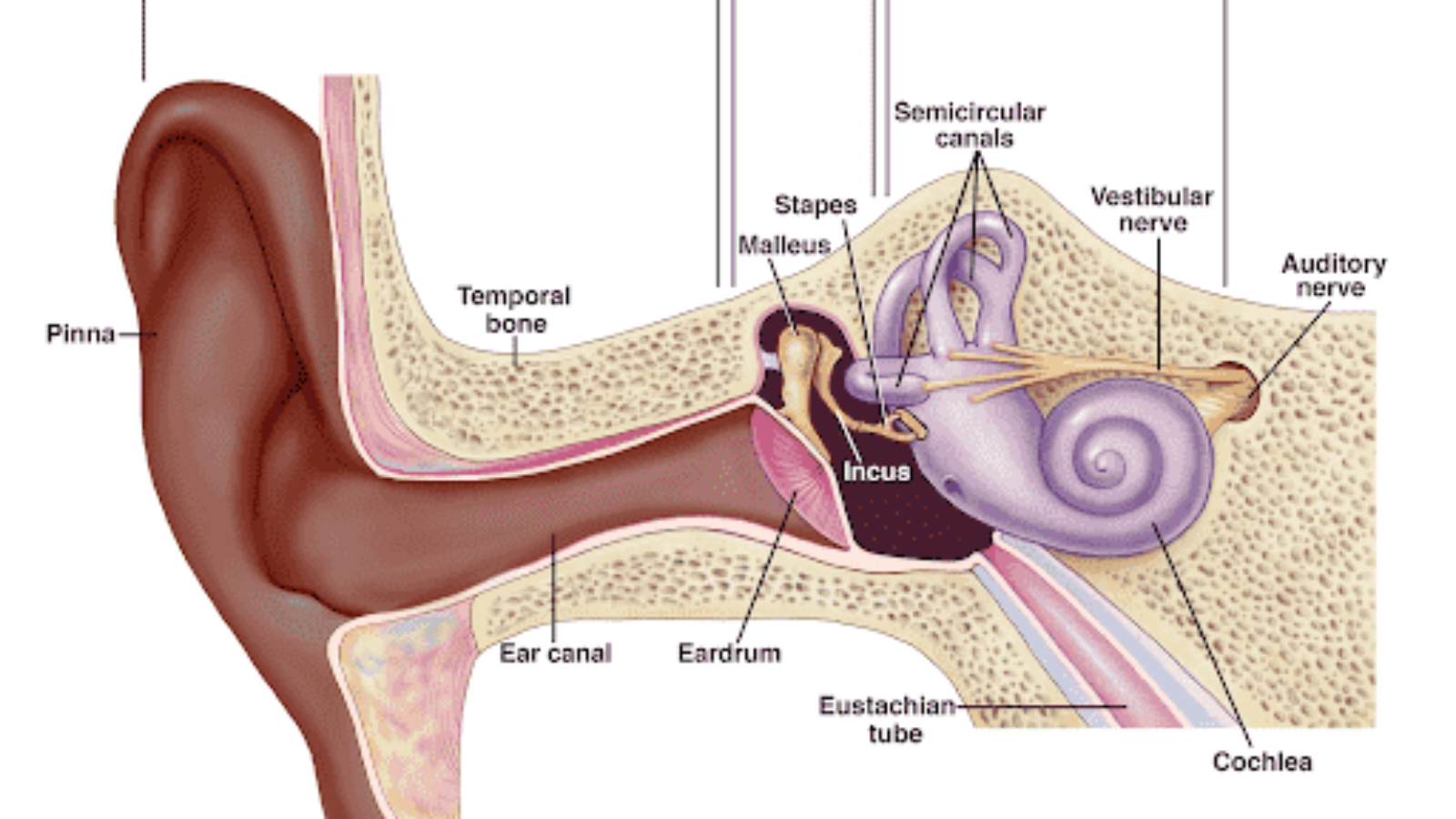
Hearing is one of our five senses, making our ears a vital part of our body. The ear consists of three parts: the outer ear, the middle ear, and the inner ear. When the outer ear picks up a sound, it travels through the external auditory canal and hits the eardrum, which then vibrates. These vibrations travel to three bones in the middle ear, known as the ossicles, where the sound gets amplified. Finally, the waves reach the cochlea in the inner ear and get converted into electrical impulses, which the brain translates into sound.
This process is necessary for everyday life. Unfortunately, due to the delicate nature of the ear, this process can easily be disrupted. For example, exposure to loud sounds can damage the ears’ nerves, causing hearing loss. However, this can also cause something else: tinnitus.
Tinnitus is the result of damage to the inner ear. Repetitive exposure to loud noise damages the tiny hair cells in the cochlea, which are responsible for sending electrical impulses to the brain. When the cells are bent or broken, they transmit random, spontaneous signals to the brain. The brain receives them and creates phantom noises – sounds only in the head with no external source.
Most cases of tinnitus are caused by hearing loss, which often happens as people age. 24% of people aged 65 and above have tinnitus. However, hearing loss can be accelerated by frequently being in an environment with loud sounds. These environments range from construction sites to blasting music through headphones. 18 – 29% of youth worldwide subject themselves to dangerous volume levels daily.
Tinnitus can cause different kinds of phantom noises: ringing, buzzing, roaring, clicking, hissing, and humming in the ears. It can be present all the time or come and go. It can be in one ear or both. It can be loud or soft.
Tinnitus may vary from person to person, but no matter how it presents, it proves to be unpleasant.
About 750 million people around the world have tinnitus. Most people with it lament that they can’t have silence anymore. The constant sound in their ears can even cause anxiety and depression. Some use background noise, such as TV or music, to drown out the noise. Tinnitus can be ignored sometimes, but the cold, hard truth is that tinnitus is permanent. There is no cure.
So, the best method of protection is prevention. Tone down the volume of your music when you use headphones. Wear earplugs when you’re in a loud environment like a concert. Regularly exercise and eat healthy to prevent tinnitus caused by obesity or blood vessel disorders.

The world has gotten louder. Noise surrounds us constantly, and it can be hard to get a moment of silence. By protecting your ears, you protect your peace as well.
Sources:
Inner Ear: Anatomy & Function
https://www.stanfordchildrens.org/en/topic/default?id=anatomy-and-physiology-of-the-ear-90-P02025
https://www.stanfordchildrens.org/en/topic/default?id=anatomy-and-physiology-of-the-ear-90-P02025
https://www.mayoclinic.org/diseases-conditions/tinnitus/symptoms-causes/syc-20350156#:~:text=Over%20time%2C%20exposure%20to%20loud,to%20help%20protect%20your%20hearing
https://www.washingtonpost.com/wellness/2022/11/16/loud-music-ear-damage-hearing-loss-deaf/
https://www.nytimes.com/wirecutter/reviews/best-earplugs-for-concerts
https://www.theatlantic.com/magazine/archive/2019/11/the-end-of-silence/598366
https://m.media-amazon.com/images/I/51XWq+KyMiL._AC_SY300_SX300_.jpg


Add a Comment